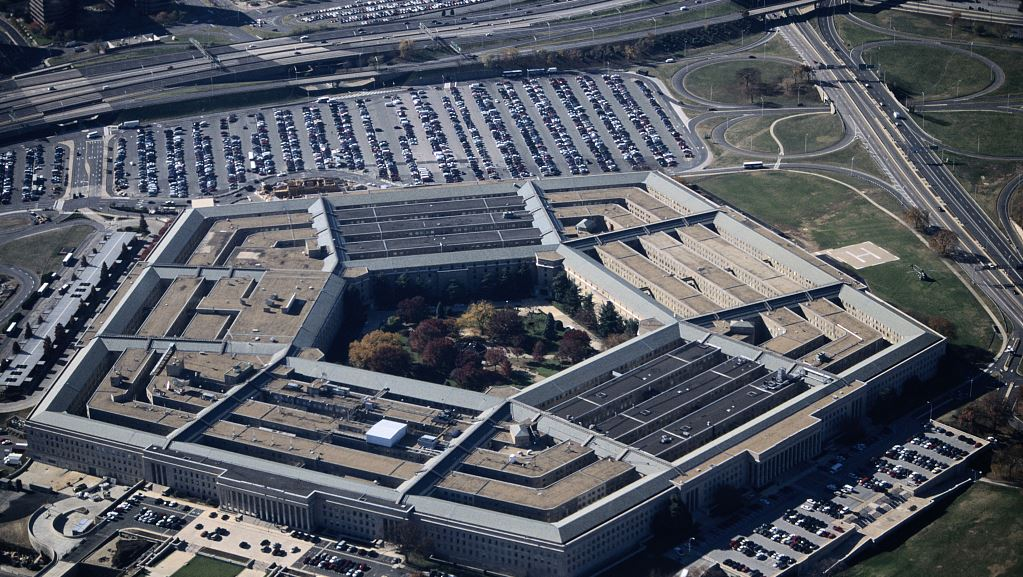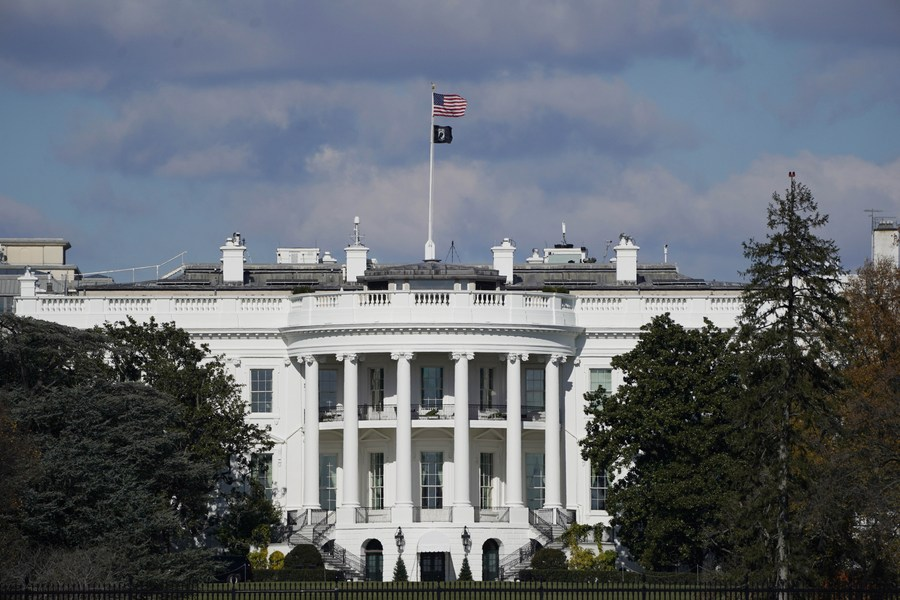
The Pentagon in Washington, D.C., U.S. [Photo/Xinhua]
By William Jones
The U.S. State Department on October 25 announced a $2 billion arms sale package for the Taiwan region, which for the first time, includes surface-to-air missile systems and radar. China has already issued strong statements of protest and lodged representations with the U.S. on the matter. In addition, the Chinese Foreign Ministry said that Beijing would "take resolute countermeasures and take all necessary measures to firmly defend national sovereignty, security and territorial integrity."
This comes at a time when the new leader of the Taiwan region, Lai Ching-te, is clearly attempting to amplify Taiwan's international presence. Although he avoids openly calling for independence, a step he knows would likely lead to military conflict, he is actively pursuing policies that reduce the Taiwan region's ties with the Chinese mainland.
As Taiwan Affairs Office spokesperson, Zhu Fenglian said on October 27 in response to the new U.S. arms sales to Taiwan, since the Democratic Progressive Party (DPP) authority, led by Lai came to power, it has attempted to "rely on the United States to seek independence" and "seek independence by military means," constantly escalating cross-strait confrontation.
The DPP authority is also receiving support and encouragement from the anti-China crowd in Washington, which has continued to use Taiwan as a pawn in its game of weakening China. With China's development as a major economic and political power over the last few decades, the "Taiwan card" has become even more important as the United States now designates China as its "major rival."
While the policy of the Joe Biden administration remains the same as that which lay at the basis of the rapprochement with the People's Republic of China in the 1970s, namely, asserting that Taiwan is a part of China and that the U.S. does not support Taiwan independence, many of the measures taken by this same administration, including the $2 billion defence package, point in the opposite direction.

The White House in Washington, D.C., U.S. [Photo/Xinhua]
In addition, recent moves by the U.S. government to create an "alliance-like" grouping in the Asia-Pacific region, with the establishment of new defence agreements between the U.S., Australia and the UK, along with an increased U.S. military presence in Japan, indicate a clear intent on the part of the Biden administration to create a "corridor of containment" around China in which Taiwan may well play a part. It was likely no coincidence that on the same day, the State Department approved the $2 billion arms sales to Taiwan, the U.S. was conducting meetings with both Japan and South Korea on the need for "maintaining peace and stability" across the Taiwan Strait, according to a White House readout.
In accordance with the three communiques, China has stated that it prefers to achieve unification by peaceful means, while not rejecting the use of force if Taiwan were to declare independence. Earlier in October China conducted a military exercise around the island of Taiwan to serve as a warning against separatist acts fomented by the DPP authority. The U.S., however, is using this exercise as a pretext for increasing military aid to the island. Positioning Taiwan as an element of an expanded "fortress America" in the Asia-Pacific would most likely lead to conflict.
In the context of the new "Indo-Pacific" strategy of the United States, creating a "cordon of containment" around China on the Pacific Rim, the increased arms sales to Taiwan can only be interpreted as an attempt to pull Taiwan into a U.S.-designed policy architecture for the region that could only provoke conflict with China. More than "sweet words" from the Biden administration and repeated "mantras" of the three communiques will be needed to convince China of the "peaceful intentions" of the United States in the region.
William Jones, a special commentator on current affairs for CGTN, is the former Washington bureau chief for EIR News Service and a non-resident fellow of the Chongyang Institute for Financial Studies, Renmin University of China.

 中文
中文



